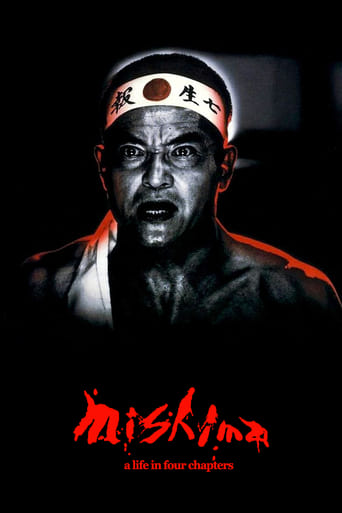On November 25, 1970, Japan's most celebrated writer, Yukio Mishima, shocked the world.
Producida por Coppola y Lucas, "Mishima" es un retrato biográfico del consagrado autor japonés Yukio Mishima. La película investiga la inquietud interior y las contradicciones de un hombre que trató de alcanzar una imposible armonía entre sí mismo, el arte y la sociedad. La trama se centra en el día en que Mishima conmocionó al mundo, al hacerse en público el seppuku o harakiri (25 de noviembre de 1970), en el Cuartel General del Ejército. El relato está salpicado de flashbacks para contar diversos episodios de su infancia, sus comienzos como escritor, el posterior triunfo profesional, su tranformación en estrella mediática, sus obsesiones por la belleza física y sus ambiguos gustos sexuales, así como la creación de la "Sociedad del Escudo". (FILMAFFINITY)
*Si nuestra moderación aprueba tu versión, será reemplazada y serás acreditado como autor del texto.
Año1985
Presupuesto5000000$
Duración121 minuto
Ingresos502758$
GénerosDrama
Países de producciónJapanUnited States of America


